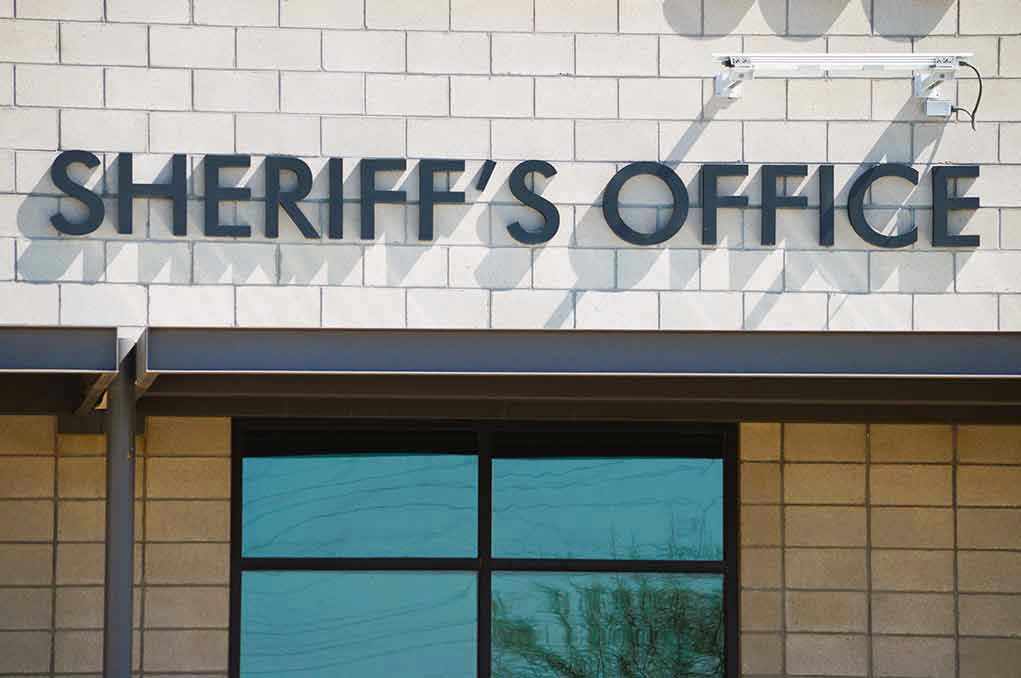
A Texas sheriff found himself in the unprecedented position of being arrested and booked into his own jail by the very deputies he commanded, facing charges that would make any law enforcement leader’s worst nightmare come true.
Story Snapshot
- Johnson County Sheriff Adam King arrested by his own deputies for sexual harassment and retaliation against whistleblowers
- King now faces a third felony charge of aggravated perjury for allegedly lying to a grand jury during the investigation
- Despite the charges, a judge allowed King to return to work under strict restrictions while awaiting his August 2026 trial
- The case represents a rare instance of internal law enforcement accountability with deputies turning against their own boss
When Your Own Badge Becomes Your Handcuffs
Sheriff Adam King’s arrest marked one of the most dramatic falls from grace in recent law enforcement history. The scene played out like something from a movie: deputies walking into their boss’s office with handcuffs, reading him his rights, then escorting him to the very jail cells he oversees. The charges stemmed from over 18 months of alleged misconduct involving multiple female employees who reported inappropriate behavior and subsequent retaliation.
The Texas Rangers investigation uncovered a pattern of harassment that included inappropriate comments about female employees’ appearance and clothing, along with offers of special perks in exchange for personal attention. When victims came forward, King allegedly responded with threats and retaliation, including threats of arrest against those who dared to speak up.
Community rallies in support of Johnson County Sheriff Adam King amid indictments for harassment, retaliation https://t.co/3jLpJpNAKl
— CBS News Texas (@CBSNewsTexas) September 3, 2025
The Perjury Trap That Changed Everything
Just when observers thought the case couldn’t get more serious, prosecutors dropped another bombshell in October 2025. King faced a third felony charge of aggravated perjury, accused of lying to the grand jury investigating the original harassment allegations. This escalation suggests King may have attempted to obstruct justice by providing false testimony under oath, a move that legal experts say often proves more damaging than the original charges.
The aggravated perjury charge carries significant weight in Texas, potentially resulting in years behind bars if convicted. More importantly, it demonstrates that King’s legal troubles extend beyond workplace misconduct into active interference with the judicial process. This development transforms what began as internal personnel issues into a full-scale criminal justice crisis.
The Unprecedented Return to Work
In a decision that raised eyebrows across law enforcement circles, the presiding judge allowed King to return to work while awaiting trial, albeit under strict conditions. King must work limited office hours, maintain no contact with witnesses, and use a private entrance to avoid encounters with potential victims or whistleblowers. Captain Ben Arriola continues serving as acting sheriff during King’s restricted duties.
The judge’s decision reflects the complex balance between due process rights and public safety concerns. While King maintains his innocence and pleaded not guilty to all charges, the restrictions acknowledge the serious nature of the allegations and the potential for further misconduct. This arrangement creates an unusual situation where an accused felon continues leading a law enforcement agency while facing multiple felony charges.
The Broader Implications for Law Enforcement Accountability
King’s case represents more than just another corruption scandal; it demonstrates how internal law enforcement accountability can actually function when officers put justice above loyalty. The deputies who arrested their own boss faced an impossible choice between professional allegiance and moral duty. Their decision to proceed with the arrest sends a powerful message about the rule of law applying equally to everyone, regardless of rank or position.
The case also highlights the critical role of independent investigations in law enforcement misconduct cases. The Texas Rangers’ involvement provided the necessary distance and objectivity that internal affairs investigations often lack. This external oversight proved essential in building a case strong enough to result in multiple felony indictments against a sitting sheriff.
Sources:
Texas sheriff arrested by his own deputies, now faces new charge for lying to grand jury




